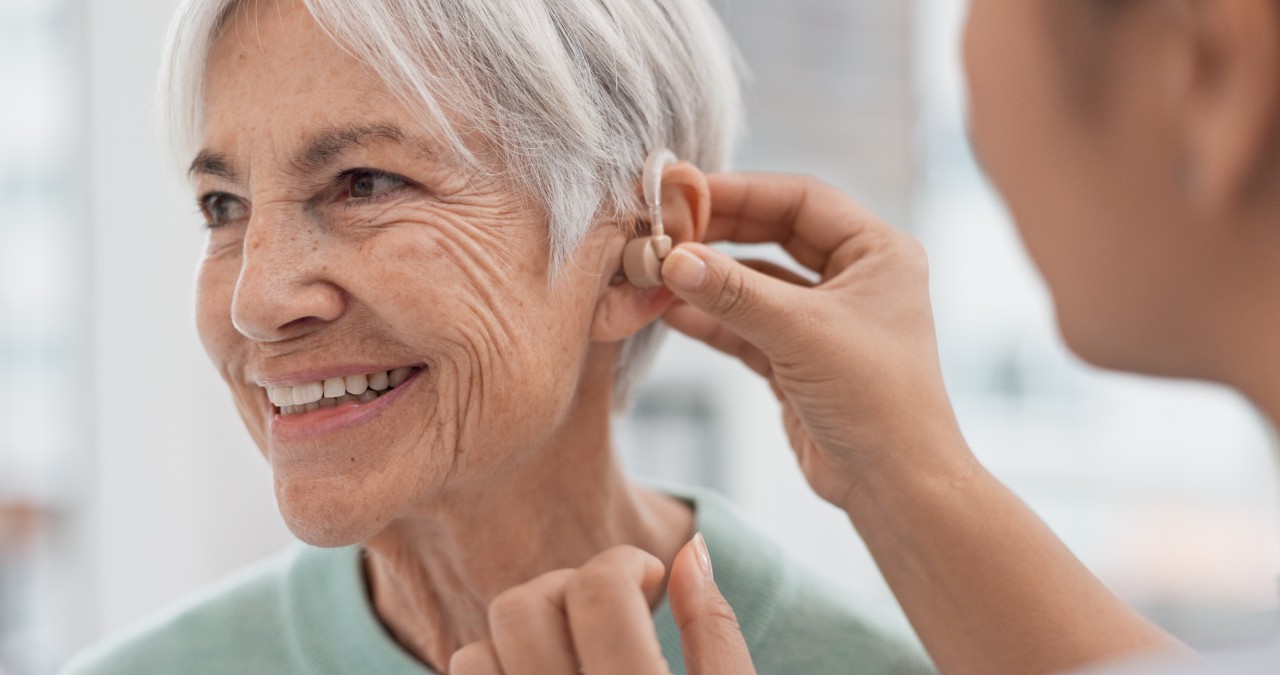
Four hearing aid breakthroughs to know about
UC expert says technology has evolved substantially
In recent years, hearing loss technology has evolved substantially, improving on everything from efficacy to look and feel. Today, even AirPods have a built-in hearing aid feature.
Ear health is not on everyone's radar, but maybe it should be.
“About one in seven Americans experience some form of hearing loss,” Daniel Sun, MD, a University of Cincinnati associate professor in the Department of Otolaryngology - Head and Neck Surgery in the College of Medicine, recently told Flow Space.
Sun, who also serves as director of the Division of Neurotology, said it’s typically age-related, though it can come on earlier than a person might think. At midlife, hearing loss is often linked to dementia, a cognitive condition that’s on the rise worldwide.
Hearing loss is a risk factor for dementia, not necessarily the cause of it. However, experts told Flow Space it’s a much higher risk than previously thought. One recent study found that up to 32 percent of dementia cases can be attributed to measurable hearing loss — in other words, early screening and intervention may delay the onset of dementia for a large swath of older adults.
Experts said women have a much higher risk of hearing loss-related cognitive impairment, so it's especially relevant for them.
Otosclerosis is another condition that can lead to hearing loss at midlife. It stiffens bones in the ear, compromising sound’s ability to travel.
“For reasons we don’t yet fully understand, it tends to occur more commonly in women, especially after one or more pregnancies,” said Sun.
For those who may be worried about their hearing, Sun recommended consulting with an ear, nose and throat (ENT) doctor for a hearing test. It’s the only way to get properly assessed and treated. Regular screenings are recommended for those 50 and older.
Featured image at top: A health care provider places a hearing aid on a woman's ear. Photo/iStock/Jacob Wackerhausen.
Related Stories
Love it or raze it?
February 20, 2026
An architectural magazine covered the demolition of UC's Crosley Tower.
Social media linked to student loneliness
February 20, 2026
Inside Higher Education highlighted a new study by the University of Cincinnati that found that college students across the country who spent more time on social media reported feeling more loneliness.
Before the medals: The science behind training for freezing mountain air
February 19, 2026
From freezing temperatures to thin mountain air, University of Cincinnati exercise physiologist Christopher Kotarsky, PhD, explained how cold and altitude impact Olympic performance in a recent WLWT-TV/Ch. 5 news report.
